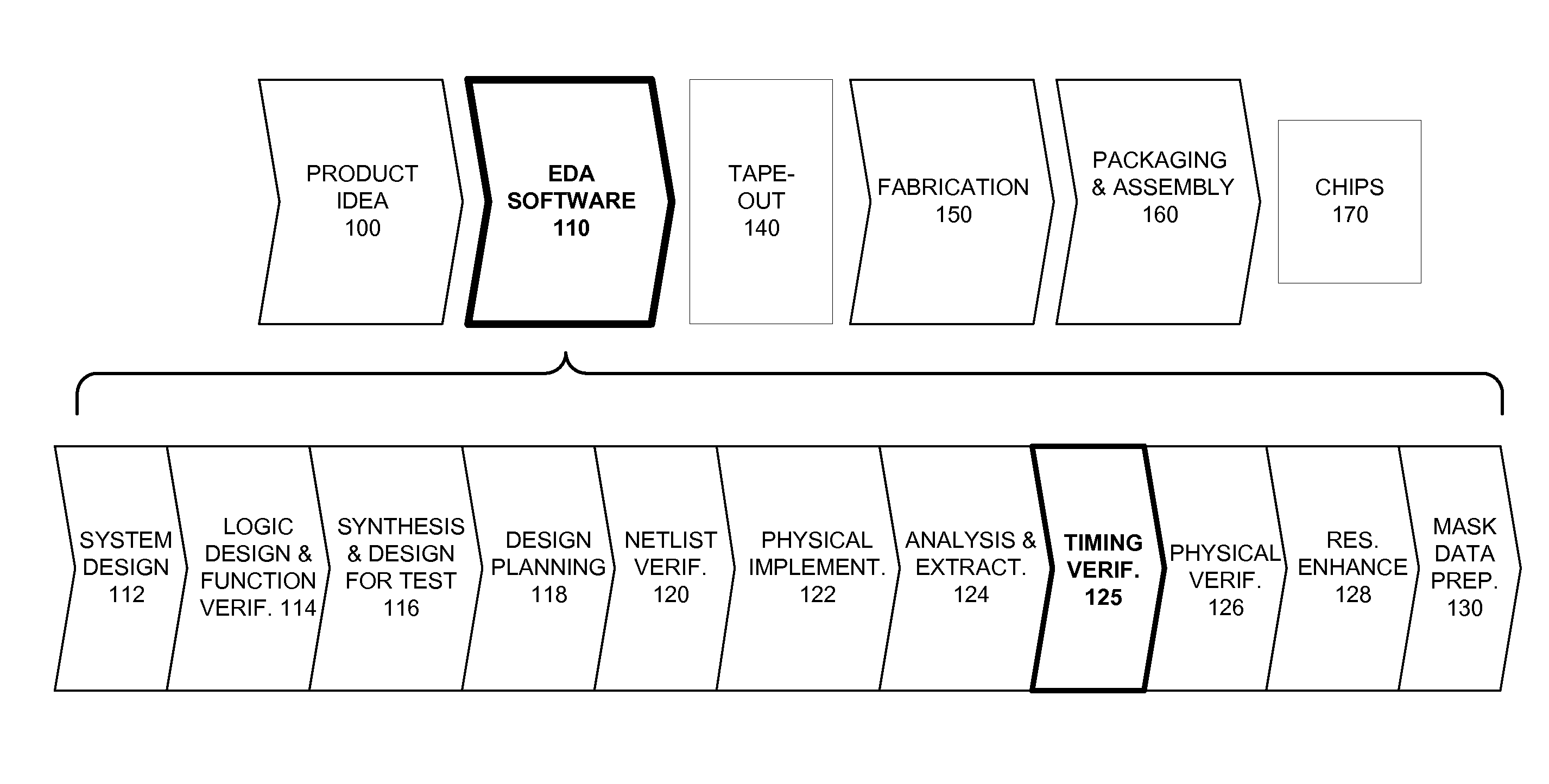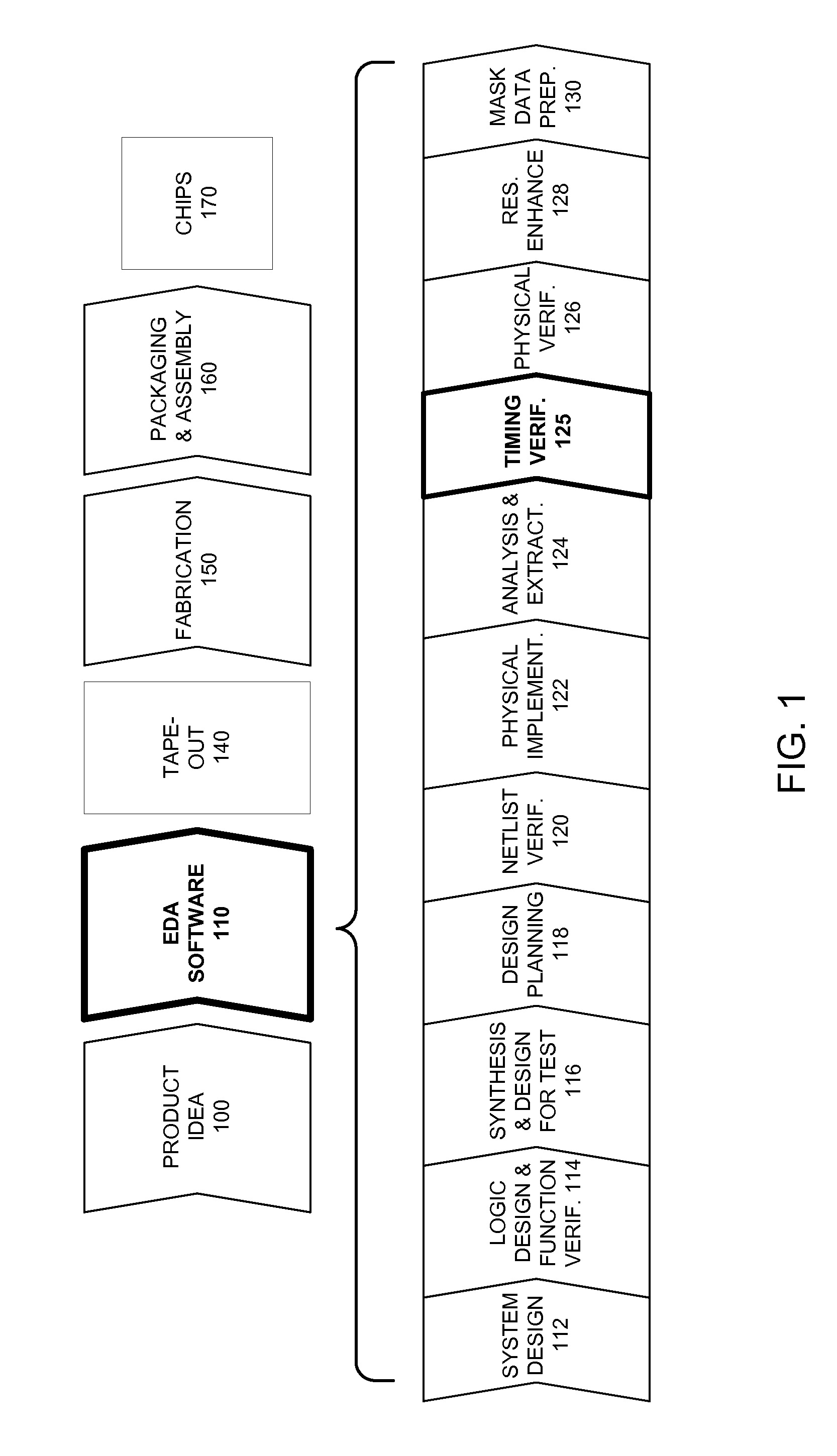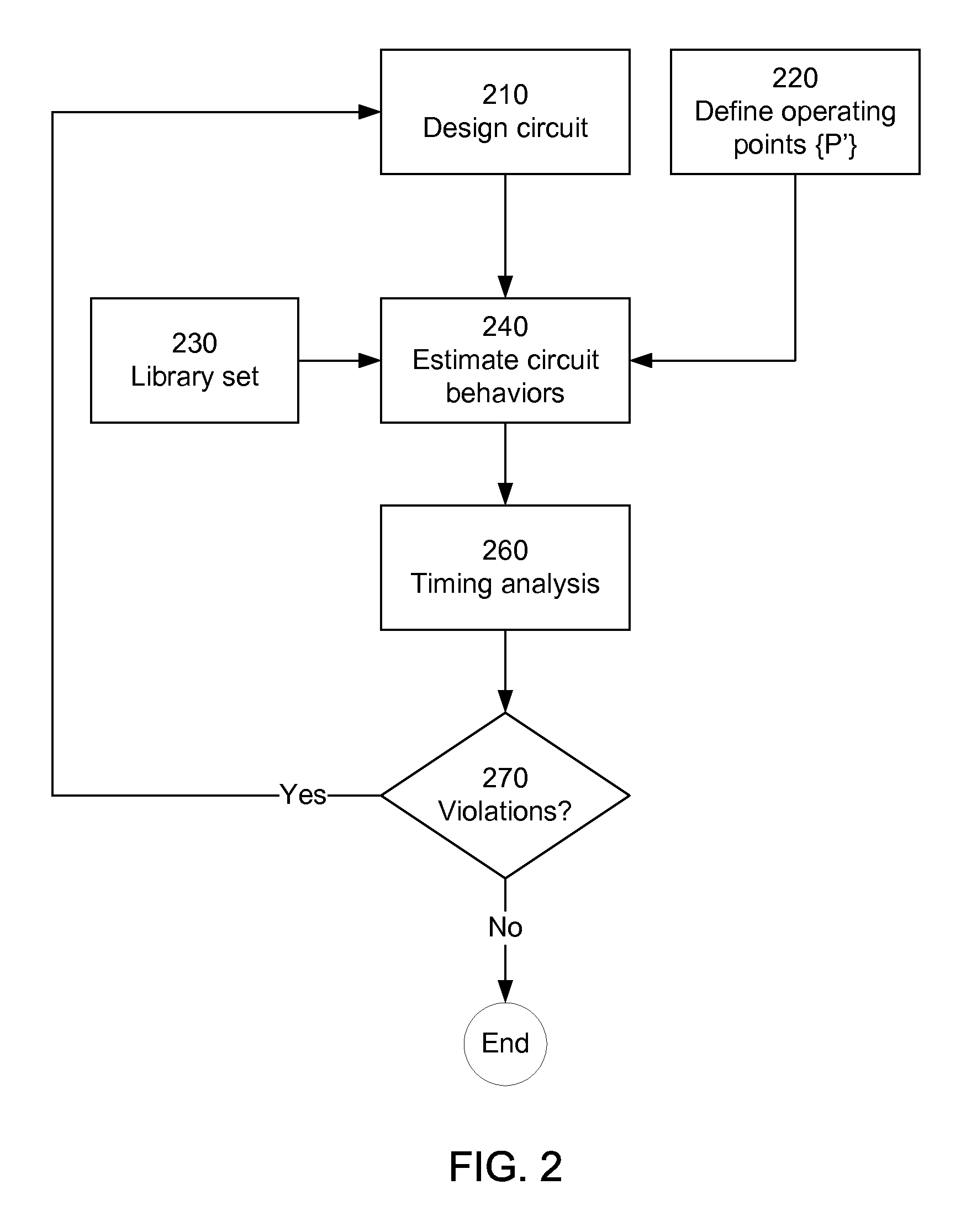Nonlinear Approach to Scaling Circuit Behaviors for Electronic Design Automation
a technology of electronic design automation and behavior, applied in the field of scaling circuit behavior, can solve the problems of increasing the cost of design errors, increasing the complexity of integrated circuits, increasing the cost of development, etc., and achieve the effect of avoiding recalculation for each scaling task
- Summary
- Abstract
- Description
- Claims
- Application Information
AI Technical Summary
Benefits of technology
Problems solved by technology
Method used
Image
Examples
Embodiment Construction
[0016]A preferred embodiment of the present invention is now described with reference to the figures where like reference numbers indicate identical or functionally similar elements. Aspects of the invention will be illustrated using static timing analysis (STA) as an example, but the invention is not limited to STA.
[0017]FIG. 1 illustrates the various steps in the design and fabrication of an integrated circuit in accordance with an embodiment of the present invention. The process starts with a product idea 100. Next, the product idea is realized by an integrated circuit, the design of which is accomplished using electronic design automation (EDA) software 110. Once the design is finalized, it is taped-out 140. After tape-out, the process goes through fabrication 150, and packaging and assembly 160. The process eventually culminates with the production of physical integrated circuits 170.
[0018]The EDA software design step 110, in turn, includes a number of phases. In this example, ...
PUM
 Login to View More
Login to View More Abstract
Description
Claims
Application Information
 Login to View More
Login to View More - R&D
- Intellectual Property
- Life Sciences
- Materials
- Tech Scout
- Unparalleled Data Quality
- Higher Quality Content
- 60% Fewer Hallucinations
Browse by: Latest US Patents, China's latest patents, Technical Efficacy Thesaurus, Application Domain, Technology Topic, Popular Technical Reports.
© 2025 PatSnap. All rights reserved.Legal|Privacy policy|Modern Slavery Act Transparency Statement|Sitemap|About US| Contact US: help@patsnap.com



